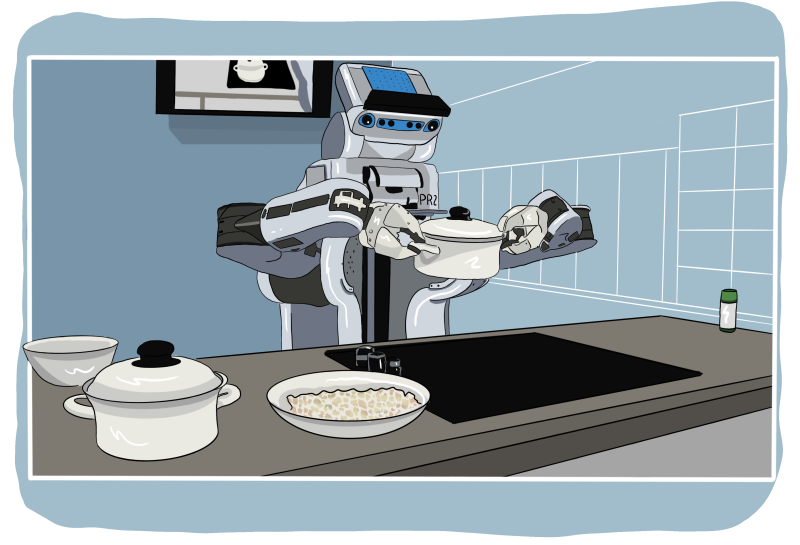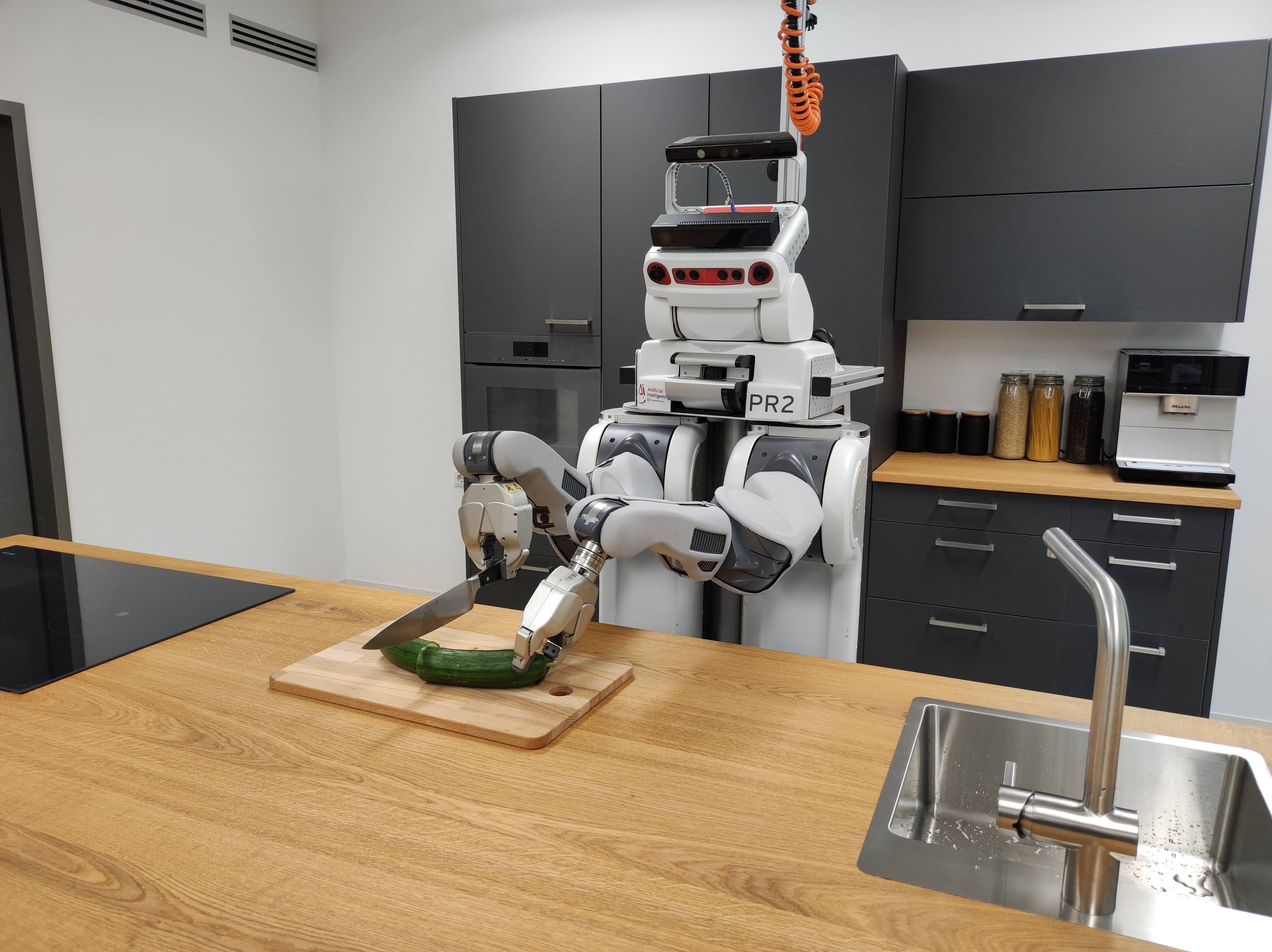
The
lecture deals with current techniques for the implementation of
technical cognitive systems, i.e. intelligent computer systems that have
sensors and actuators. Such systems are mainly used in areas such as
service robotics, autonomous space probes, intelligent living and
working environments and driver assistance systems.
The following topics are covered:
The following topics are covered:
- Sensors, actuators and physical infrastructures of technical cognitive systems (including smart sensors, sensor networks)
- Computational models for controlling technical cognitive systems: dynamic system model, rational agent model, the computational model of technical cognitive systems
- Fundamentals of probabilistic state estimation: Bayes filters, Kalman filters, particle filters, mechanisms for data association, learning of sensor and action models, hidden Markov models, expectation maximization
- Applications of probabilistic state estimation: self-localization, environment mapping, object tracking
- Programming methods for technical cognitive systems: concurrent reactive control mechanisms; knowledge and plan-based control techniques

This course deals with the idea of bringing knowledge into applications
to support users in daily life. It therefore covers topics on how
knowledge can be represented to be machine-understandable, how knowledge
can be acquired from different sources (including Web scraping) and how
such different knowledge chunks can be linked. It will further discuss
how to reason about knowledge and how different agents like websites, AR
applications or robots can use knowledge to support users in their
daily life. All exercises will be available in platform-independent
jupyter notebooks based on python and have low software requirements.

The lecture deals with current techniques for the implementation of technical cognitive systems, i.e. intelligent computer systems that have sensors and actuators. Such systems are mainly used in areas such as service robotics, autonomous space probes, intelligent living and working environments and driver assistance systems.
The following topics are covered:
The following topics are covered:
- Sensors, actuators and physical infrastructures of technical cognitive systems (including smart sensors, sensor networks)
- Computational models for controlling technical cognitive systems: dynamic system model, rational agent model, the computational model of technical cognitive systems
- Fundamentals of probabilistic state estimation: Bayes filters, Kalman filters, particle filters, mechanisms for data association, learning of sensor and action models, hidden Markov models, expectation maximization
- Applications of probabilistic state estimation: self-localization, environment mapping, object tracking
- Programming methods for technical cognitive systems: concurrent reactive control mechanisms; knowledge and plan-based control techniques